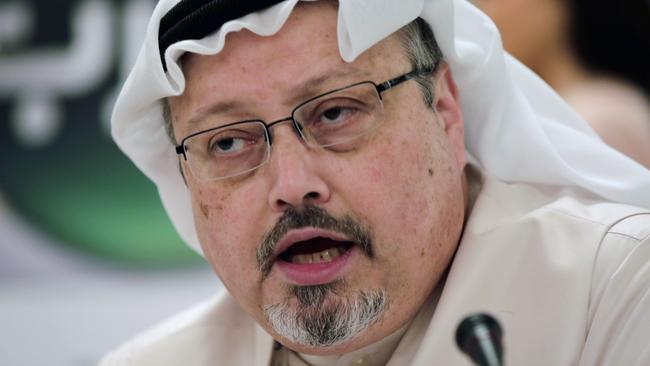
It is increasingly clear that the president will not to allow Khashoggi’s killing to undermine the US relationship with Saudi Arabia.
Despite threatening “severe punishment” for the desert kingdom just days ago, Trump now appears to have decided the stakes are too high to allow ties to be harmed because of the assassination of the dissident journalist.
Both the president and his Secretary of State Mike Pompei made it clear today that although they are reserving their position until the Saudi and Turkish investigations of Khashoggi’s murder are complete, the relationship with the Saudis was of upmost importance.
Pompeo said; “I do think it’s important that everyone keep in their mind that we have lots of important relationships — financial relationships between US and Saudi companies, governmental relationships, things we work on together all across the world — efforts to reduce the risk to the United States of America from the world’s largest state sponsor of terror, Iran.”
These are not the words of an administration that is contemplating imposing sanctions or some other form of punishment on Saudi Arabia for the murder of a journalist who was critical of its regime.

The US sees Saudi Arabia as a key ally in its most important foreign policy priority — helping constrain Iran’s malign influence in the region. It also sees Riyadh as well as a rich market for US military sales and numerous investment opportunities.
The White House has personally invested in the 33-year-old Crown Prince and heir to the Saudi throne Mohammed bin Salman, identifying him as someone who is willing to modernise the hardline regime while remaining a stalwart US ally.
The overall importance of the relationship lacks the mutual dependency it once had, with the US far less reliant on Saudi oil than it once was.
Even so, neither country wants to Khashoggi affair to destabilise the relationship and both are looking for a way to defuse the current controversy without harming ties.
The Saudi king and the crown prince have given Trump a way out by simply claiming that they knew nothing about Khashoggi’s death.
It is a claim which flies in the face of probability. It seems inconceivable that a 15-member team, which included a forensic expert as well as members of the crown prince’s security detail, would conduct a rogue murder in a Saudi consulate without orders from the top. Hardline Saudi Arabia, which stones women for adultery, is the last country in the world which would experience freelance murders inside its own consulates.
According to Turkish officials, the audio and video of the murder also proves that it wasn’t an interrogation gone wrong as some reports have implied.
Yet it is all but impossible for the White House to prove — even if it wanted to — exactly what the crown prince did or did not know about the killing. This provides the figleaf for Trump to accept the crown prince’s claim, despite the improbability that it is true.
When you combine this escape clause with the fact that Trump simply doesn’t want to do anything that would undermine the relationship, you end up with the status quo, which is where this controversy is likely to end. The US knows Khashoggi was murdered by Saudis with close ties to the crown prince. It was an ugly, brutal and thuggish act which reflects poorly on the heir to the Saudi throne.
But the view of Trump and the administration is that the US has bigger interests at play in the region which should not be put at risk to protest the killing of a dissident Saudi journalist.
Like it or hate it, it is Realpolitik Trump-style.
Cameron Stewart is also US Contributor for Sky News Australia





The murder of Jamal Khashoggi looms as the ultimate example of Donald Trump’s transactional approach to foreign policy.